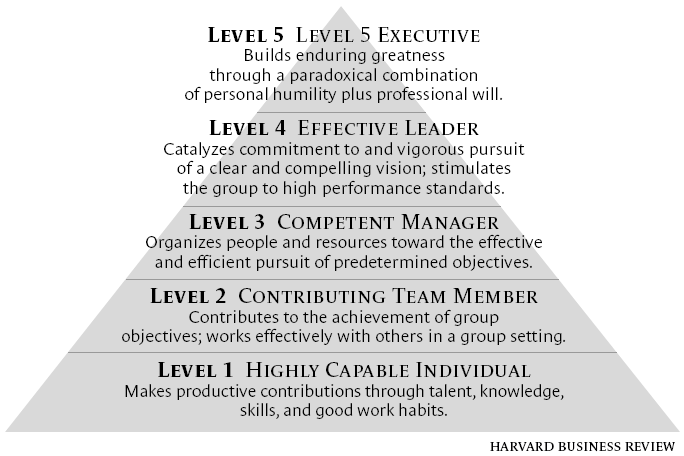Leadership Theories and Practices Collection
Some leadership theories that we can practice to become great leaders.
I. Google's project Oxygen on building better bosses
Eight Good Behaviors:
II. Transformational leadership theory
Transactional leader
I. Google's project Oxygen on building better bosses
Eight Good Behaviors:
1. Be a good coach. Provide targeted feedback, identifying both positive and negative qualities in employees. Have regular one-on-one meetings.
2. Empower your team and don’t micromanage. Give freedom to employees in carrying out tasks, but make yourself available for advice.
3. Express interest in team members’ success and personal well-being. Get to know employees as people with lives outside of work.
4. Be productive and results-oriented. Help the team prioritize work and use seniority to minimize roadblocks. Don’t be afraid to step in and give direction when needed.
5. Be a good communicator and listen to your team. Encourage open dialogue and listen to the concerns of your employees.
6. Help your employees with career development.
7. Have a clear vision and strategy for the team. Don’t lose sight of the goal. Involve your team in setting goals and identifying the group’s vision.
8. Have key technical skills so you can help the team with advice. Roll up your sleeves when needed. Understand what goes into the tasks that your team works on.
- Contingent reward: contracts exchange of rewards for effort, promises rewards for good performance, recognizes accomplishments.
- Management by exception (active): watches and searches for deviations from rules and standards, takes correct action.
- Management by exception (passive): intervenes only if standards are not met.
- Laissez-Faire: abdicates responsibilities, avoids making decisions.
Transformational Leader
- Idealized influence: provides vision and sense of mission, instills pride, gains respect and trust.
- Inspirational motivation: communicates high expectations, uses symbols to focus efforts, expresses important purposes in simple ways.
- Intellectual stimulation: promotes intelligence, rationality, and careful problem solving.
- Individualized consideration: gives personal attention, treats each employee individually, coaches, advises.
Transformational leadership is most effective in small organization with high power distance and collectivism environment.
Source: A. H. Eagly, M. C. Johnannesen-Schmidt, M. L.Van Engen; T. A.Judge and J. E. Bono
III. Level 5 leadership
adapted from 'Good to great' by Jim Collins
IV. Further studies
There are some skills that we need to gain along the way of practicing leadership behaviors:
- Building trust
- Coaching & mentoring
- Effective and influential communication
- Building culture
- Managing team
- Career development
- Emotional intelligence


Comments
Post a Comment